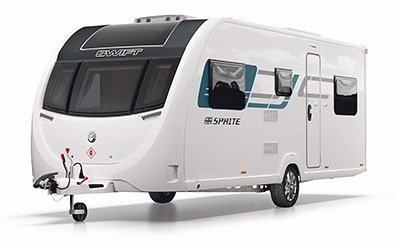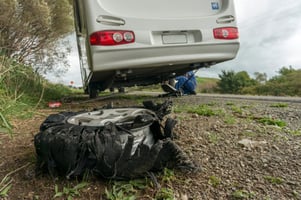How to keep your caravan’s fridge in tip-top condition
Sadly, the UK caravan market has been under increasing pressure this year, with sales slowing, dealers closing and many businesses turning to storage as a ‘safer’ alternative. The rising taxes and rates in the country, heavily-squeezed household budgets, and perhaps an oversupply of used models have all dented the demand, while it’s been found that consumer behaviour and needs are evolving. At the same time, industry reports show that, despite a 25% increase in the overall value of the UK camping and caravanning sector over the past five years, growth has now stalled under the weight of the cost-of-living crisis and, sadly, our view of what we deem to be poor weather. Against this backdrop, the future of the market looks uncertain - but, hopefully, against the doom and gloom, opportunities still remain for those that are willing to adapt.
Let’s have a look at the current landscape, explore what’s apparently driving these changes, and consider what might lie ahead.
.jpg?width=1000&height=546&name=shutterstock_2164611765%20(1).jpg)
Some dealers are moving to storage as sales drop
A sad trend has been emerging, as several caravan dealers have pivoted away from traditional sales in favour of offering storage. Atlantic Caravans, once Cornwall’s sole Sprite dealer, stopped selling new caravans in 2023. The owner, Darren Bull, has repositioned the 2.5 hectare site primarily as a storage facility, with used-caravan sales now by appointment only. Interestingly, he reports that the simplified operation has actually boosted business.
Similarly, Oaks Caravans, based near Ipswich and selling used caravans, has secured planning permission to create a storage site for up to 49 caravans nearby. While still offering servicing and repairs, the dealership is restructuring and reassessing its long-term strategy.
Meanwhile, some dealers haven’t fared as well. Mansfield Caravans entered voluntary liquidation in July 2025, and Downshire Caravans in Northern Ireland also closed its doors.
What’s driving the market downturn?
Well, it seems a combination of pressures is reshaping the market, and sales are slowing, perhaps because of...
The post-pandemic oversupply and declining demand…
Following the pandemic boom, many dealerships stocked up in anticipation of continued demand. But as travel restrictions lifted and economic realities set in, the demand cooled, resulting in overstocked forecourts. A Mintel report highlights that the sector saw a decline in value in 2024 due to weather and economic factors, although consumer interest remained strong amongst families and the younger generations, which is a positive thought going forwards.
Economic pressures are hitting hard…
High inflation, increasing interest rates, and the ongoing cost-of-living pressures have put the financial burden on consumers, making caravans - particularly newer ones - less attainable. Even the campsites are now having to contend with squeezed margins, increased wage bills (including National Living Wage hikes), and some volatility in bookings due to the cost-of-living crisis and poor weather. This all makes things seem, and feel, a bit uncertain.

So what might the future hold?
Despite these challenges, the broader global caravanning sector isn’t entirely bleak, and globally, many forecasts remain positive. Worldwide, the caravanning market is expected to have grown from $27.77 billion in 2024 to $32.48 billion in 2025, with a projected expansion to $60.76 billion by 2029.
It’s thought we might expect more dealerships to downsize, shifting toward leaner business models that rely on appointment-only sales, servicing and vehicle storage rather than maintaining large, risky inventories.
As an outright purchase becomes less appealing, it might be that rental, subscription services or caravan-sharing platforms may rise in popularity. These options offer the flexibility and affordability that younger consumers and families increasingly seek, and people do still want to do staycations, especially if they have young families. We’ve noticed that whilst prices have gone down, people are still buying second-hand caravans, which is good (for now). While new caravan sales are struggling, the used market remains relatively sturdier, and buyers looking for bargains may find decent value here.

The industry’s silver lining for new caravans could lie in innovation, with eco-friendly designs, smart technology and modern features that could end up breathing new life into caravanning.
To sum up, it seems the UK caravan market in 2025 finds itself at a bit of crossroads. Some dealers are looking to adapt by transforming sales sites into storage operations, reflecting broader market contraction and with economic pressures reshaping buyer behaviour and industry viability. Yet the fundamentals of caravanning - staycations, outdoor travel, consumer interest - these haven’t vanished. The future likely holds a shift toward flexible ownership and innovative product design, and resilient dealers who adapt may emerge leaner, and perhaps better aligned with the up-and-coming caravan owners of tomorrow…




.jpg)


